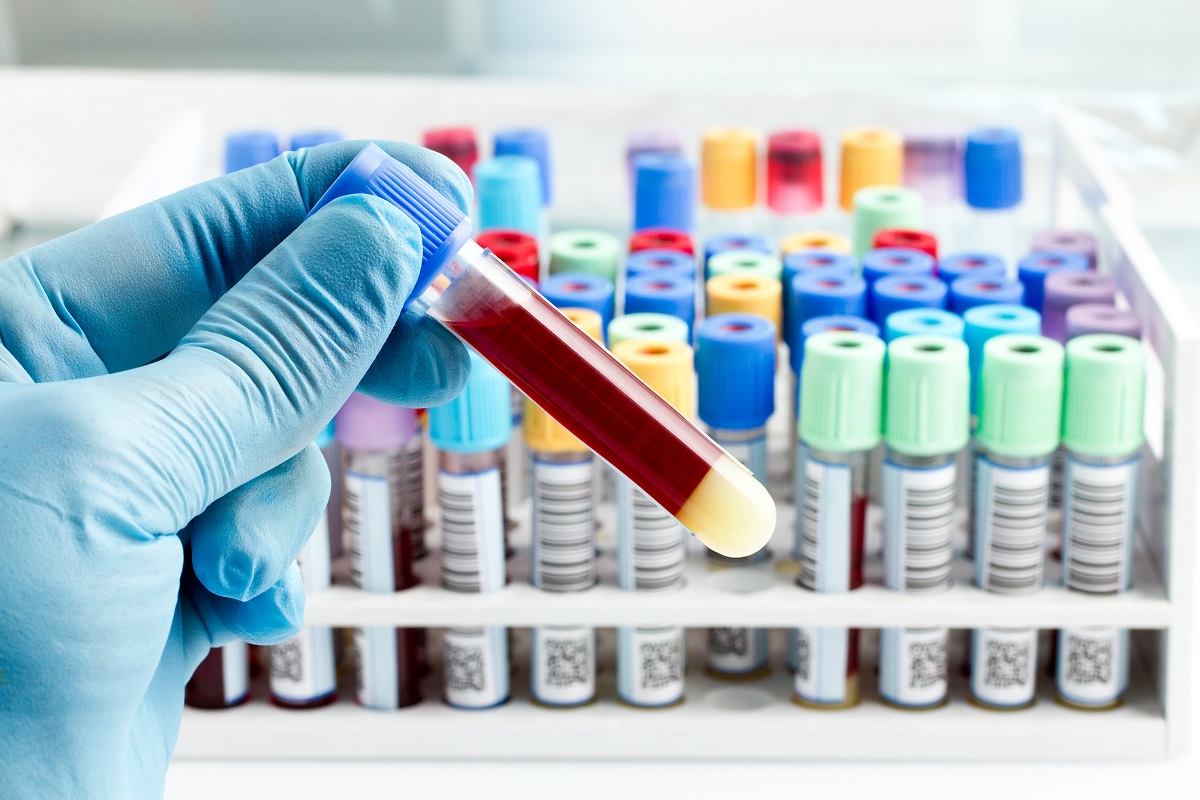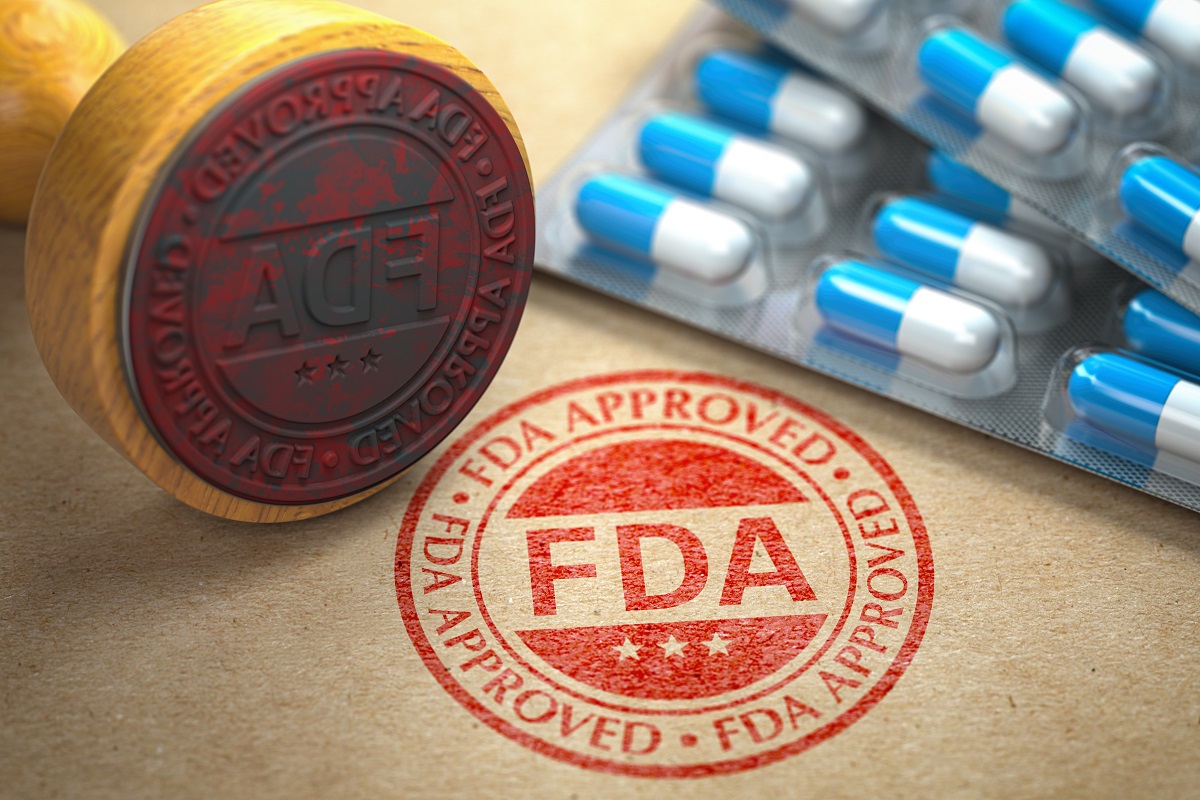If you’re sick and prescribed a medication by a medical professional, you shouldn’t have to worry about potential side effects that may be harmful. Trust is a big part of medicine, and unfortunately, big pharmaceutical companies may betray that trust in order to rake in big profits. Such was the case when Sanofi-Aventis released their defective chemotherapy drug to cancer patients.
But how do these drugs bypass governmental regulation and oversight in order to make it into our market?
A largely held misconception is that members of the Food and Drug Administration (FDA) are the ones who do the testing on various products before they are approved for the market; however, the Government Accountability Office (GAO) called out the FDA on multiple occasions for being too short of staff and inadequately equipped to do everything it can to protect the public. This, in general, has led to major consequences in how some offending pharmaceutical companies run their business.
The Unfortunate Truth
Because of the FDA’s lack of resources, they are sometimes forced to rely on clinical trials on drugs that were performed by the very manufacturers who are trying to sell the product in the first place. For this reason, companies looking to put profits over people can get their defective medications approved by the FDA with tests they ran much easier than what we would expect.
Regarding Taxotere, the drug may have been used in treating breast cancer in patients, but it caused excessive tearing, or epiphora, a long-lasting condition that alters the lives of these individuals. These patients were not made aware of the side effect when initially agreeing to treatment. In fact, a study done in 2014 from the National Center for Biotechnology Information (NCBI) found that 64% of Taxotere patients were found likely to have epiphora.
Despite pharmaceutical corporations doing everything they can to avoid liability, our 7th amendment right guarantees you a trial by jury. Being honest and forthright with consumers about the drugs being distributed on the market should be something that is paramount to a pharmaceutical company’s daily operation, but until they start taking on this responsibility, you need someone who will fight for you.
You Don’t Have to Fight Your Battle Alone
While strengthening the FDA, their ability to check the tests companies run, and their ability to review results more closely all may seem like the optimal route to take, having experienced legal representation at your side is something that victims of Sanofi-Aventis’ deceit need right now.
Although defective and dangerous drugs like Taxotere will continue to be sold, that doesn’t mean you should shoulder all of the losses on your own or have to accept unforeseen side effects that weren’t disclosed to you when the medication was prescribed.
Epiphora and other conditions caused by drugs that haven’t been properly taken off the market and kept away from consumers shouldn’t be able to dictate the future for you or your loved ones. While our chemotherapy tearing attorneys at Hotze Runkle PLLC won’t be able to prevent dangerous products from being sold on the market, we can help you fight for the civil justice you deserve.
Take a stand today, and contact our national Taxotere lawsuit lawyers to start you on your path to justice.
Schedule My FREE Consultation

The current coronavirus pandemic is presenting individuals and families with newfound challenges on a daily basis.
Whether it is facing unemployment, adjusting to social distancing, or keeping enough food on the table, the one thing Americans have in common right now is uncertainty. However, trusting the medication you’re prescribed shouldn’t be on this list of concerns.
Members of our legal team at Hotze Runkle PLLC believe consumers ought to be able to trust their healthcare providers and drug manufacturers. Unfortunately, we also know this is not always the case. We’re confident in taking down manufacturers, specifically Sanofi-Aventis, in regards to their chemotherapy drug Taxotere and fighting for patients who have been harmed from undisclosed side effects.
Spotting Faulty Medication During These Tough Times
You want your medicine to do what it says it’s going to do, but in the face of the widespread infection of COVID-19, there’s even more at risk from medicine manufacturers who make false claims.
At Hotze Runkle PLLC, we have the experience and track record of defeating established drug manufacturers who are comfortable withholding information from honest consumers.
Here are some tips from the U.S. Food and Drug Administration (FDA) for spotting faulty coronavirus cures:
- Be suspicious of products that claim to treat a wide range of diseases.
- Personal testimonials are no substitute for scientific evidence.
- Few diseases or conditions can be treated quickly, so be suspicious of any therapy claimed as a “quick fix.”
- If it seems too good to be true, it probably is.
- “Miracle cures,” claimed as scientific breakthroughs or containing secret ingredients, are likely a hoax.
- Know that you can’t test yourself for COVID-19.
Examples of Fraudulent Coronavirus Medications
The FDA continues to make it clear to the public that while researchers and healthcare professionals continue to investigate, there has yet to be a medication or vaccine discovered to prevent or treat the coronavirus.
Jim Bakker is a televangelist who is currently being sued by Missouri for the production and sale of Silver Solution. He debuted this fake medication, which he claimed could cure the coronavirus in February on his TV show, and by doing so violated both state and federal law.
There have also been multiple, fake at-home tests being sold across the country. These cannot accurately tell individuals if they test positive for COVID-19 and also have the potential to cause harm.
According to the Center for Disease Control and Prevention (CDC), you may be able to recover from the virus at home, but you do need to monitor your symptoms closely and separate yourself from others.
Aside from common over-the-counter medications to treat a fever, cough or other symptoms, you should not be purchasing anything that isn’t approved by the CDC to treat or test for the coronavirus. You should seek out medical attention if you start to experience any of the following:
- Trouble breathing
- Persistent pain or pressure in the chest
- New confusion or inability to arouse
- Bluish lips or face
You Deserve the Truth
At Hotze Runkle PLLC, we do not condone the advertisement and sale of faulty medication. This includes companies being negligent when sharing potential side effects with consumers.
Our experience with pharmaceutical lawsuits is something we want to continue to share with individuals who have been harmed as a result of Taxotere.
Long-term side effects caused by medications that make false claims can cause physical and mental trauma. Whether it’s the unexpected side effects of Taxotere or the false claims of other pharmaceutical companies, our lawyers are here to help you file your Taxotere claim and come out on the other side of it victorious – and with the compensation you deserve.
Contact us today at (877) 919-0830 for a FREE case review.

More than 100,000 reports of suspected medication errors are sent to the U.S. Food and Drug Association (FDA) every year. These errors are defined in the FDA’s article from 2019 essentially as something that could have been prevented and ended up causing the patient harm, and one case that represents this definition involves Sanofi-Aventis and their breast cancer chemotherapy treatment, Taxotere.
Taxotere is a particular drug that is known to produce long-lasting side effects like chemotherapy tearing, and its makers, Sanofi-Aventis, chose not to inform their patients about it. As a result, the national Taxotere lawsuit lawyers of Hotze Runkle PLLC are fully committed to helping you challenge Sanofi-Aventis’ negligence in order to win your case so you can receive the financial relief you deserve.
You Need Proof to Support Your Claim
There are three fundamental aspects that come into play throughout the process of proving your Taxotere tearing claim. The key to strengthening your case falls within these categories:
- Proof of your injury
- Proof the drug is defective
- Proof that the defect caused your injury
It’s crucial for you to hold onto as much documentation as you can from the moment your symptoms start. If you have information about when you or your loved one had chemotherapy, especially including additional hospital or doctor visits, this will help to confirm when your injury began as well as how intense the symptoms were.
While it can be far more difficult to show how a drug is defective, taking note of the marketing and labeling of drugs they were prescribed can strengthen your case. If a drug was incorrectly labeled, swapped for a different medicine, or failed to address the full extent of its potential side effects, then you may have a case for it being defective.
Connecting the defectiveness of the drug with your injury can be as simple as completing a timeline. Being matched with an experienced attorney means that they can ask you the right questions and help you develop your testimony, which would ultimately make your case even stronger.
Luckily, that’s what the national Taxotere lawsuit lawyers at Hotze Runkle PLLC are trained and prepared to do. It is also worth noting that not every defective drug case is the same, so having someone on your team who can challenge drug manufacturers that have acted negligently to you while addressing your individual needs is exactly how you’ll earn the compensation you need to heal.
Our Experienced National Taxotere Lawsuit Lawyers Can Work Towards Your Civil Justice.
Doctors and drug manufacturers like Sanofi-Aventis should be sources of reliability during the challenging times of poor health. If you can provide examples of the aforementioned evidence, then you or a loved one may be entitled to compensation for the hindrance this defective drug has had on your life.
Don’t settle for less. Avoid going into a complicated case on your own. The legal team at Hotze Runkle PLLC is here to help you earn the settlement you deserve in order to bring some normalcy back to your life.
Start planning how to win your defective Taxotere claim with Hotze Runkle PLLC today.
Schedule Your Free Consultation

The effectiveness of chemotherapy is undeniable, particularly when it comes to breast cancer treatment. Being able to halt the production of cancerous cells in early-stage or metastatic breast cancer can help the patient in getting an upper hand when it comes to fighting this invasive disease.
However, while chemotherapy may produce positive results, there is also a long list of side effects, ranging from short-term to permanent, that accompany the treatment. Taxotere (Docetaxel) is a specific chemotherapy drug that can cause epiphora, or excessive tearing from the eyes, in patients who were prescribed it.
If you or a loved one are experiencing extremely watery eyes during or after chemotherapy treatment, then you may qualify to file a personal injury claim due to Taxotere. The national Taxotere lawsuit lawyers at Hotze Runkle PLLC want to fight for the compensation that is rightfully owed to you because of the manufacturer’s negligence.
Symptoms That May Qualify You for a Chemotherapy Tearing Lawsuit
Research has shown that Taxotere can block a patient’s tear ducts, which results in tears spilling over the eyelids that resemble crying because they can’t be drained properly through the ducts. Mild blockage can cause frequent tearing, while a complete blockage will result in a full-on overflow of tears in the patient. Besides the fact that this is unsettling and uncomfortable, the constant tearing can cause other side effects such as:
- Sharp pain around the eyes
- Enlarged blood vessels
- Redness
- Soreness
- Eyelid swelling
- Blurry vision
- Sensitivity to light
- Sudden loss of vision
- Symptoms continue to worsen rather than improve
It is also worth noting that in a study published in 2014 by the National Center for Biotechnology Information (NCBI), it stated that up to 64% of Taxotere patients were found likely to have epiphora. There are other complications patients noted experiencing with their eyesight besides epiphora, which include:
- Blurred or dulled vision
- Clouding of the lens of the eye
- Loss of areas of vision (cystoid macular edema)
- Headaches
- Sensitivity to light
- Eye infections
- Dry eyes (keratoconjunctivitis sicca)
- Swollen eyelids
If you find yourself experiencing these symptoms, getting a diagnosis from your primary care physician or an eye specialist is a good place to start. Then, once you have documented medical proof, seek out a Taxotere lawyer to see if you have a case. There, we can look at the evidence to determine if you have a solid case against Sanofi-Aventis regarding their failure to inform you of the chemotherapy tearing caused by their drug.
Keep in mind that while it may seem that joining a class-action lawsuit would be more likely to bring you justice, opting for a personal injury lawsuit against Sanofi-Aventis often reaps better results.
Hotze Runkle PLLC: National Taxotere Lawsuit Lawyers Ready to Take On Sanofi-Aventis for You
The life-altering consequences of epiphora can affect your mental health as well as your physical health. Going after the manufacturer for minimized mentions of the severity tearing side effects have, or for falsely marketing Taxotere, is a case you deserve to win. You weren’t expecting to conquer cancer and then fall subject to another uncomfortable condition that could stay with you for life.
The attorneys at Hotze Runkle PLLC don’t believe you have to settle for this compromise. When it comes to Taxotere cases, they’ve fought hard to represent clients injured in product liability cases and plan to continue serving those subject to the unknown side effects they’re learning to live with thanks to Sanofi-Aventis.
Contact Our National Taxotere Lawsuit Lawyers to Determine If You have an Excessive Tearing Case.
Get in Touch With Hotze Runkle PLLC Now

If you have encountered negative, life-changing side effects after treatment with a defective drug, you may potentially qualify to file a defective drug lawsuit. However, the exact specifics of your situation should be fully understood before you decide to make a claim.
Should you have a legitimate claim on your hands, you will have an opportunity to secure compensation for your injuries. If it can be proven that the pharmaceutical company failed to uphold their responsibilities to you, then they are legally liable for the damages you suffered as a result of the defective drug.
However, fighting against a million-dollar company can be tricky. That’s why the Texas Taxotere lawsuit lawyers of Hotze Runkle PLLC are available to protect your rights if you’ve been the victim of excessive and permanent tearing (epiphora) as a result of being treated with the chemotherapy drug Taxotere.
When Can I File for a Defective Drug Lawsuit?
One of the most commonly asked questions we hear at Lapeze & Johns is, “When can I file a defective drug lawsuit?” In order to effectively file a claim, it must be proven that:
1. The pharmaceutical company failed to warn consumers of defects.
There are instances where drug manufacturers do not comply with their duty to warn the public about side effects. This can include the drug’s label not informing the consumer what side effects should be expected from taking the drug.
Failure to warn continues to be of the most common arguments used to file a claim. In an attempt to make profits, a company may fail to include all the side effects of a drug. This leaves patients exposed to dangerous repercussions.
2. The product is designed with flaws.
Advancements in science and technology have led to improved medical innovations. Unfortunately, this also raises the possibility of defects in design. These defects can lead to serious injuries for patients. If a pharmaceutical company creates a drug that has inherent defects, then they can be held legally liable for the pain they have caused you.
3. The drug is manufactured improperly.
There are times when a company can come across an issue in the manufacturing process. This may tarnish the drug’s safety, while also putting patients’ health at risk.
The Challenges that Come with Fighting Pharmaceutical Companies
Pharmaceutical companies will generally have strong defenses in place, prepared for defective drug lawsuits. If you decide to take your claim to trial, the company’s lawyer might try to use the following legal notions against you:
- Conducive negligence implying that your injury is your own fault
- Assumption of risk factor
- Product alteration
- The statute of limitation
Why Seeking the Right Representation Can Help
Considering the fact that these cases are complex, seeking the right representation is essential to your chances of securing compensation and bringing faulty companies to justice.
Cases against big pharmaceuticals can leave you caught up in court processes for years. Our lawyers can evaluate a settlement, saving you time and stress.
As a victim, you deserve to have your voice heard. Even if you defeat your cancer, you should be able to go back to your quality of life without feeling inclined to accept negative, uncomfortable changes.
If you are one of the many victims of permanent and irreversible tearing caused by the chemotherapy drug, Taxotere, you can count on the Texas defective drug lawyers of Hotze Runkle PLLC.
If you wish to schedule a consultation over the phone or via video conferencing as precautionary measures to pause the spread of the coronavirus (COVID-19), we are happy to discuss your preferred alternative options for communication.
Call Hotze Runkle PLLC at (877) 919-0830 as soon as possible for your FREE case review.

If you have suffered debilitating side effects as a result of being treated with a defective drug, you may be overwhelmed by the extent of your medical bills, even if your injuries were caused by a product that promised to make you feel better.
Since you won’t have the compensation you need until the end of the claims process and your health care provider may not be willing to wait, you’re going to have to find ways to manage your medical bills while your claim is pending.
Our Texas Taxotere lawsuit attorneys of Hotze Runkle PLLC are ready to answer any questions you may have regarding medical bills and other expenses if you have fallen victim to excessive tearing (epiphora) after being treated with the chemotherapy drug Taxotere.
Health Insurance Coverage
Your first resource to help cover the costs should be through your health insurance. Your health insurance may wait to see the extent of your injuries a few weeks after treatment before they reimburse you for the medical bills you’ve already paid and been charged for.
Give your health insurance information to your local hospital, emergency room and other health care providers from where you sought treatment.
Medical and Hospital Liens with Personal Injury Claims
Your personal injury claim is related to the costs of the healthcare you receive. Hiring an experienced lawyer can help you keep tabs of all of your medical care as a portion of the settlement negotiation (or trial litigation).
What typically occurs is that your health insurer will apply a hospital lien or medical lien towards your personal injury claim. To put it into simpler terms, the insurer’s statement that they helped you pay for your health care, means they should receive reimbursement from your settlement or verdict.
Therefore, your settlement should have the medical lien, the attorney’s fees, and court fees all taken out of the final total when you get it. If things run smoothly, you should expect no medical bills and sufficient funds to pay for any potential costs in the future.
About Lawsuit Loans
If your injury makes you lose money or face unanticipated charges, you may be wondering if a lawsuit loan would help to ease your financial stress while waiting for your lawsuit to be resolved.
How a lawsuit loan works is that a lawsuit funding company purchases your rights to all or part of your compensation in exchange for income you can use while your case is still pending. If this loan is meant to help relieve financial stress, you may discover that you and your lawyer will have more time to negotiate with the defendant. If the defendant doesn’t offer a fair settlement, a lawsuit loan might give you the financial support to go to trial.
However, lawsuit loans tend to be on the pricey side, not all cases are eligible for a loan, they don’t always function like other loans, and it could be challenging to find a lender you can trust.
Because lawsuit lenders are selective about which cases they accept, plaintiffs oftentimes report having to go after five or six different companies before they find one willing to fund their case.
Statute of Limitations
The statute of limitations in Texas for medical bill debt is four years. A medical care provider (e.g. hospital) can possibly sue for unpaid medical bills and put a lien towards your home, but only in the case that they take it to court and win the case before the time frame expires.
Note that this statute is not one to be confused with the statute of limitations for a product liability claim.
Let the Texas Taxotere lawsuit attorneys at Hotze Runkle PLLC assist you!
Medical bills can be overwhelming when your injury is already causing you to suffer significantly. This is why hiring the right attorney who knows just how to navigate the complicated medical system is so important.
If you or a loved one have been a victim of permanent and irreversible tearing due to treatment with the chemotherapy drug, Taxotere, and need guidance when dealing with insurance providers and medical bills, the Texas defective drug lawyers of Hotze Runkle PLLC can be of assistance.
Contact Hotze Runkle PLLC at (877) 919-0830 for a FREE case review.

The discovery process is an important process that enables a lawyer to gather the right evidence in order to strengthen the value of your personal injury claim. This is especially true in cases dealing with the side effects of defective drugs made by pharmaceutical companies that put profits over people.
Such was the case when the manufacturer of the chemotherapy drug Taxotere–known as Sanofi-Aventis–failed to inform cancer patients about its negative side effects like chemotherapy tearing for decades
If you or a loved one has developed excessive tearing after being treated with Taxotere, you may be eligible for compensation. The makers of Taxotere should be held responsible for the harm their drug caused, and the National Taxotere lawsuit attorneys of Hotze Runkle PLLC aim to do just that by presenting solid evidence during the discovery process in order klonopin online to help your case succeed.
What Is the Discovery Process?
The discovery process takes place prior to the start of the trial, giving both parties the chance to assemble information on the case. Discovery is important because it gives your attorney a chance to evaluate which evidence and strategies may be utilized in your favor.
When you initially file a lawsuit, the relevant information is not always easily accessible. However, the more evidence you obtain, the more you can support the claim. The discovery process allows you and your lawyer to gather as much information as possible from the pharmaceutical manufacturer through a request of production, interrogatories, and other sources to solidify your claim.
How Do Lawyers Gather Discovery Materials?
Attorneys on either side of the courtroom may follow a number of approaches to secure necessary information, such as:
- Requests for Production (RFP) – RFPs are filed to acquire documents (e.g. electronic or paper files). RFPs need comprehensive details covering what documents a party wants to be made public by the opposing side.
- Requests for Admission (RFA) – An RFA is a written statement that is given to the opposing party to push them to either admit or negate some information. RFAs are generally not meant to establish a confession of guilt, but rather to push the opposing party to admit that certain facts are true or that a document is legitimate.
- Interrogatories – These are written questions that a party is obligated to respond to in writing and “under oath.”
- Depositions – These are oral, in-person interrogations. One side asks the other questions, and the other side has to give their answer. “Depos” are another part of the discovery process that is performed under oath.
What Information Can Be Found?
Throughout the discovery process, both sides will go after any vital information related to the claim in an effort to prove or disprove that Taxotere was the cause of your excessive tearing, even if it may not seem immediately relevant. The kind of information that a lawyer may request in discovery includes:
- Witness Testimony — What a witness saw, did, or heard that is pertinent to the situation.
- Witness History — A witness’s professional, educational, and personal background.
- Other Injured Parties — The identities of people who may have knowledge of the life-changing side effects caused by the drug.
- Specific Dialogue — Things that were mentioned at a specific time or place about the injury and product.
- Procedural Business Information — Information about the business’s operations process.
- Documentation — Documents relating to the claim, the injury, or the drug itself.
What Information Cannot Be Requested?
There are particular pieces of information that can’t be requested as a part of the discovery process. Limitations exist to prevent private information from being shared with the public, including:
- Confidential Conversations — Exchanges between attorneys and clients, doctors and patients, religious advisors and advisees, and spouses can be withheld.
- Personal Information — Details regarding health problems, sexuality, spirituality, religious beliefs, and immediate family relationships do not have to be disclosed.
- Third-Party Information — information that, if revealed, would go against the privacy rights of third parties cannot be compelled.
Discover your Legal Options with Dependable Taxotere Lawyers of Hotze Runkle PLLC Today
If you were harmed after being treated with the chemotherapy drug Taxotere, you may be eligible for compensation for your medical bills, pain and suffering, and other losses. You can count on our National Taxotere lawsuit attorneys to give you and your case the attention you need to seek justice from the manufacturers of the faulty drug, Taxotere.
Don’t hesitate to contact the experienced Taxotere lawsuit lawyers of Hotze Runkle PLLC at (877) 919-0830 for a FREE case evaluation today if you or a loved one have suffered from chemotherapy tearing due to Taxotere treatment.

Whether it’s an over-the-counter medication or prescription drug, generally, every medicinal product has to go through various research stages and clinical testing before it is approved to be sold.
Yet, despite the fact that the U.S. Food and Drug Administration (FDA) plays a major role in this process, there are many instances where approved drugs end up being just as harmful to a patient as the condition they are trying to treat. If the pharmaceutical company that develops and designs a drug fails to give adequate warnings about any potential risks of using their product, you may be able to seek legal action against them.
For instance, Taxotere, a chemotherapy drug used primarily to treat breast cancer, has had some unexpected effects on patients. One of the major issues is permanent and irreversible tearing caused by the product.
The Texas Taxotere lawsuit attorneys of Hotze Runkle PLLC are here to give you a brief overview of exactly how the drug development process works, as well as information on factors that lead to defective drug product cases.
About the Medicine Testing Process
-
Discovery and Developmental Phase
Before a new drug is developed, market research is done first to ensure there is a need for it. This process usually includes a scientific investigation into the condition, as well as how it functions and spreads within the body. Once this portion is complete, the researchers will investigate exactly what tools (chemicals, compounds, etc.) might act on the specific disease.
-
Pre-Clinical Trials
During this phase, the research team will look for chemical compounds that will best treat the condition in a safe and effective manner. This includes determining the toxicity levels of the compounds and obtaining as much data as possible via multiple experiments.
-
The Clinical Trial Process
In order to properly test these drugs out, a protocol is created to organize the overall objectives, questions, and answers researchers are attempting to obtain. Some of the notable factors that must be decided upon before testing include:
- Who is eligible to participate in the study.
- The number of people who will be involved in the study.
- The time length of the research.
- If there would be a separate control group that will participate.
- How large of a dosage will be given to the participants.
Before officially starting the testing process, the developers must submit what is known as an Investigational New Drug (IND) application to the FDA. This application will give them the initial information of the product with all the details that must be secured.
The Phases of a Clinical Trial
If cleared to proceed with clinical testing, then 4 separate phases take place over extended periods of time.
- Phase 1: Involves a study with generally less than 100 people and is tested on either healthy volunteers or people living with a specific condition. This phase can last up to several months and it is meant to find out what the proper dosage for consumption will be. About 70 percent of drugs pass on to the next phase.
- Phase 2: This phase expands on the group size and only focuses on individuals who have a specific pre-existing condition or disease. This phase can last anywhere from several months to 2 years and is meant to determine the drug’s efficiency, as well as side effects. Only about 33 percent of drugs proceed to the next phase.
- Phase 3: This phase reaches an even larger group of volunteers who have a pre-existing condition or disease and can last anywhere from 1 to 4 years. The purpose of this phase is to not only continue evaluating the efficiency of the drugs but also monitor any long-term adverse reactions. Only about 25-30% of these drugs move to the final phase.
- Phase 4: The final phase involves several thousand volunteers who currently have the disease, and continues to monitor its safety and overall efficiency.
FDA Drug Approval
Once all the phases have been completed and it is proven that the given drug is safe to use and effective, the pharmaceutical developer can file a New Drug Application (NDA) with the FDA. The NDA reflects the overall research conducted on the drug and includes heavy detail, including clinical trial results, directions for use, safety information, side effects and abuse potential.
Once submitted, it can take 6 to 10 months for the FDA to make a final decision on whether or not the drug is safe to be sold. If there are any issues with the product, they must be resolved between the developer and the FDA. If any modifications are needed, the developer must file another application with the FDA.
The FDA will also overview the product’s labeling and marketing to make sure it complies with federal regulations. New drugs are generally protected from replications (i.e. generic versions) until their patent expiration date.
Defective Drug Claims
There are far too many cases in which developers are dishonest during the approval process. They may hide information from the FDA, provide false data, or even attempt to circumvent the process entirely through illegitimate means.
When it comes to holding pharmaceutical companies liable, there are generally three ways by which they can be found responsible:
- Improper labeling: Also known as failure-to-warn, essentially states that the developers did not properly label their drug as far as instructions, dosage, or listing risk factors when in use.
- Drug design defects: This refers to the initial design of a drug; failure to account for the entire makeup of the drug can lead to dangerous side effects that can lead to severe damages.
- Manufacturing defects: When a given drug is designed correctly but manufactured with defects, then a pharmaceutical manufacturer can be held responsible. This usually includes the drugs having tainted chemicals not originally included in the design.
Hotze Runkle PLLC, the Texas Taxotere Injury Lawyers You Can Depend On
If you or a loved one has suffered permanent tearing due to the defective chemotherapy drug Taxotere, do not hesitate to contact the Texas defective drug attorneys of Hotze Runkle PLLC.
Contact Hotze Runkle PLLC today at (877) 919-0830 for a FREE, no-obligation case review!

Pharmaceutical companies and manufacturers can be held liable for injuries caused by the defective drugs they knowingly put out on the market. Unfortunately, there are limitations when it comes to holding drug manufacturers liable.
Regardless, if you have suffered an injury as the result of a defective drug, you do have options. If you or a loved one have been the victim of excessive tearing (epiphora) as a result of being treated with the chemotherapy drug Taxotere, it’s time to fight back. Today, the relentless Texas Taxotere lawsuit attorneys of Hotze Runkle PLLC will go in-depth as to how drug companies avoid liability and how having the right representation can help.
The FDA and Its Duty to Warn Consumers
Drug manufacturers are required by the U.S. Food and Drug Administration (FDA) to properly test drugs for approval and sale. Once a drug manufacturer has received approval for public usage, it is the responsibility of the maker of the drug to warn consumers of all the potential dangers that may come with use.
While the approval process is meant to safeguard consumers, drug companies use the FDA’s approval for manufacturing and sale as a way to avoid liability for claims like defective design.
Though a drug manufacturer cannot be held accountable for unforeseeable dangers of their product, their duty to warn still persists with the release of the drug, meaning companies have to acknowledge side effects as they become recognized over time.
Unavoidably Risky Products
Some drugs are deemed as unavoidably unsafe products. This essentially means that they aren’t able to be developed entirely safe despite how meticulously they are manufactured.
Certain drugs can have life-changing side effects, but can still benefit the user anyway. If particular drugs go through the proper preparation while including sufficient warnings, the manufacturers and companies oftentimes use this concept to limit their liability in a defective drug/product claim.
Learned Intermediary
If a drug label neglects to provide details and crucial information about said product, an injured individual may be able to file a claim for failure to warn. However, if the label does, in fact, list every risk, the drug company can usually take advantage of a form of defense referred to as the learned intermediary doctrine.
This basically indicates that a manufacturer cannot be held liable for a high-risk drug if the potential side effects were mentioned on the label and made available to the patient’s doctor (the learned intermediary).
To put it into simpler terms, drug makers aren’t obligated to warn you directly. They provide the warning through learned intermediaries, who are the medical care providers who the users are in contact with.
The drug maker’s duty to warn is fulfilled as long as they mention the side effects to these parties.
On the other hand, these learned intermediaries can be held responsible if a patient suffers an injury because of their negligence. Their job is to have a full understanding of the drugs they prescribe, provide warnings of all the possible side effects, and be conscious of their patients’ conditions that could lead to issues.
In situations like these, the duty to warn no longer applies to the drug company, but instead to the physician who’s supposed to give patients a thorough explanation of the benefits, as well as the risks of the medication they’re prescribing.
The issue at hand is that in most cases, general practitioners aren’t fully aware of all the risks of a given drug.
Statute of Limitations
The statute of limitations restricts the amount of time you have to bring a lawsuit about. Every state has a specific number of years after the injury, or the date of discovery of the injury, to file a complaint in court.
Bear in mind that the Texas statute of limitations says that an individual must file a personal injury no more than two years following the day the injury arises. The time limit may also begin when the plaintiff becomes aware that the defective drug was the cause of their injury.
How the skilled Taxotere lawsuit attorneys at Hotze Runkle PLLC can help you!
Product liability lawsuits can be quite complicated, and establishing fault requires outstanding legal assistance and testimony from those who have experience in the field. Someone may well be liable for your suffering, but only a knowledgeable attorney who has heard the details of your case can make that judgment.
If you or a loved one have suffered from permanent and irreversible tearing due to treatment with the chemotherapy drug, Taxotere, the Texas defective drug lawyers of Hotze Runkle PLLC are here to help.
Contact Hotze Runkle PLLC at (877) 919-0830 if you or a loved one are suffering from excessive tearing after treatment with the chemotherapy drug, Taxotere.

When it comes to pharmaceutical and medical device companies, Americans expect them to test out the safety and effectiveness of their products before they go out on the market. Unfortunately, drugs and other medical products are not always evaluated, and even when they are, pharmaceutical companies may even falsify information to make them appear safe.
Injuries caused as a result of a defective drug or flawed medical device can permanently change someone’s life, leaving the patient and family in severe medical debt. In some instances, families may even lose loved ones.
But those who have suffered from a defective drug should know that there is hope.
U.S. law gives consumers the right to file a legal claim against the parties who have injured them if they have suffered an injury due to negligence, giving them an opportunity to secure compensation for the damages they have suffered.
If you or a loved one have suffered from excessive tearing (epiphora) upon treatment with the chemotherapy drug Taxotere, take legal action as soon as possible. Today our experienced Texas Taxotere lawsuit attorneys of Hotze Runkle PLLC will go into detail about what Taxotere victims can expect after filing a defective drug lawsuit.u Should File a Lawsuit
Faulty drug and medical device lawsuits have to do with a unique practice area of the law known as product liability. For most victims, filing a lawsuit is the only method to receive adequate compensation for injuries that lead to physical, financial, and/or emotional damages.
Plaintiffs may claim particular injuries and damages attributable to the faulty product, such as ongoing medical treatment for injuries (i.e. hospitalization expenses), loss of companionship or consortium, loss of wages, impaired quality of life, pain and suffering, or losses related to the death of a loved one (i.e. funeral costs).
While each case is unique in its own right, product liability claims share certain standards of proof. When filing a product liability lawsuit, the plaintiff must prove the faultiness of the drug or device that caused their injury.
Product liability accepts that a company may be liable for a defective product in three ways: the liable party’s failure-to-warn of defects, design or manufacturing defects, or a failure to provide adequate information to users of their product.
What to Expect After Filing a Lawsuit
A lawsuit goes through a number of phases on its way to settlement or trial.
Once your lawyer starts the process of issuing a complaint, the drug or device company composes a response and litigation occurs. The process proceeds with discovery, motions and settlement, or trial and post-trial.
Product liability laws vary per state and product, including the statute of limitations, which limits the amount of time you have to file. The Texas statute of limitations states that a person has to file a personal injury no later than two years following the day the cause of action arises. The time limit may also begin from the date of surgery, injury, or when the plaintiff realized the product caused their injury.
The clock for a defective product claim in Texas generally starts to tick when the injury happens. However, there are particular situations where the statute of limitations can be tolled to a time when the injured individual first became aware of the issue.
In either scenario, it is imperative that the victim of the injury keep track of the date of injury to ensure their eligibility to file a lawsuit.
In drug and device injury litigation, there is generally no fee for a consultation.
Let the trustworthy Taxotere lawsuit lawyers at Hotze Runkle PLLC fight for you!
If you or a loved one have suffered from permanent and irreversible tearing as a result of treatment with the chemotherapy drug Taxotere, you can count on the defective drug lawyers of Hotze Runkle PLLC to take it from here.
You have the right to hold the pharmaceutical company responsible and deserve compensation for your suffering. With a FREE consultation from Hotze Runkle PLLC, you are one step closer to making that happen.

